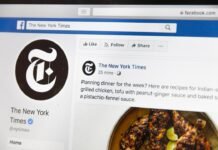A cover letter is an essential part of a job application that introduces the applicant to a potential employer and expresses interest in a specific position. It serves as a platform to showcase personality, relevant skills, and experiences while demonstrating enthusiasm for the role. A well-written cover letter can distinguish an applicant from others and create a positive first impression on hiring managers.
It allows candidates to explain why they are suitable for the job and how their qualifications align with the company’s requirements and values. The primary goal of a cover letter is to persuade employers to consider the applicant for the position and extend an interview invitation. Cover letters also provide an opportunity to address potential issues in a resume, such as career changes, employment gaps, or limited direct experience in the field.
They allow applicants to offer context and explanations for aspects of their background that may need clarification. Furthermore, cover letters enable candidates to express genuine interest in the company and the specific role, potentially establishing a personal connection with the hiring manager. Understanding the purpose of a cover letter is crucial for creating an effective document that enhances a job application and increases the likelihood of securing an interview.
Key Takeaways
- A cover letter should clearly communicate the purpose of applying for a specific job and why you are the best fit for the position.
- Your cover letter should complement your resume by highlighting key experiences and skills that are relevant to the job you are applying for.
- Use your cover letter to showcase your key accomplishments and skills that make you a strong candidate for the position.
- Personalize your cover letter for each job application by addressing the hiring manager by name and tailoring your content to match the job requirements.
- Express your passion and interest in the company and the role you are applying for to demonstrate your genuine enthusiasm.
- A strong cover letter should have a clear and professional format, with a strong opening, body, and closing paragraphs.
- Always proofread and edit your cover letter to ensure it is free of errors and presents your qualifications and interest in the best possible light.
Aligning Your Cover Letter with Your Resume
Creating a Cohesive Narrative
By doing so, you create a cohesive and consistent narrative that reinforces your qualifications and makes a strong case for why you’re a suitable candidate for the position. This alignment ensures that you’re providing a comprehensive overview of your professional background and expertise, giving the employer a clear understanding of what you have to offer.
Expanding on Key Points
Furthermore, aligning your cover letter with your resume allows you to expand on certain points or provide additional context for specific experiences or achievements mentioned in your resume. This can help you further demonstrate your value and potential contribution to the company, giving the hiring manager a more in-depth perspective on your qualifications.
Presentation and Professionalism
By integrating the content of your cover letter with your resume, you create a cohesive and compelling application package that presents a unified representation of your skills and experiences. This alignment also shows attention to detail and professionalism, which can leave a positive impression on potential employers.
Highlighting Key Accomplishments and Skills

One of the most important aspects of a cover letter is highlighting key accomplishments and skills that are relevant to the job you are applying for. This involves identifying specific achievements from your professional experience that demonstrate your ability to excel in the role and contribute to the company’s success. By showcasing tangible results and impactful contributions, you provide evidence of your capabilities and make a compelling case for why you are well-suited for the position.
Additionally, highlighting key skills that are directly related to the job requirements can help you stand out as a qualified candidate with the necessary expertise to excel in the role. Incorporating quantifiable achievements, such as exceeding sales targets, leading successful projects, or implementing cost-saving initiatives, can add significant value to your cover letter and capture the attention of hiring managers. It is important to be specific and provide details about the outcomes of your actions, as this can help illustrate the impact of your work and differentiate you from other applicants.
Furthermore, emphasizing key skills that are essential for the role, such as leadership abilities, technical proficiencies, or communication skills, can further strengthen your cover letter and demonstrate your suitability for the position. By highlighting key accomplishments and skills, you can effectively showcase your value as a candidate and increase your chances of securing an interview.
Personalizing Your Cover Letter for Each Job Application
Personalizing your cover letter for each job application is essential for demonstrating your genuine interest in the position and the company. This involves customizing the content of your cover letter to align with the specific requirements, values, and culture of the organization you are applying to. By conducting research on the company and tailoring your cover letter accordingly, you can show that you have a thorough understanding of their business and that you are genuinely motivated to contribute to their success.
Personalization also allows you to address the hiring manager by name and reference specific details about the company or the job posting, which can help create a more personalized and impactful impression. Furthermore, personalizing your cover letter enables you to make direct connections between your experiences and the needs of the company, demonstrating how your background aligns with their goals and challenges. This can help you convey a sense of relevance and fit for the role, which is essential for capturing the attention of potential employers.
Additionally, personalization shows that you have taken the time and effort to tailor your application specifically for their organization, which can set you apart as a proactive and dedicated candidate. Overall, personalizing your cover letter for each job application is crucial for demonstrating your genuine interest and enthusiasm for the opportunity while also showcasing how your qualifications align with the company’s needs.
Showcasing Your Passion and Interest in the Company
In addition to personalizing your cover letter, it is important to showcase your passion and interest in the company when applying for a job. This involves expressing genuine enthusiasm for the opportunity and demonstrating a strong connection to the company’s mission, values, and culture. By conveying your excitement about the prospect of joining their team and contributing to their success, you can create a positive impression and show that you are genuinely invested in the opportunity.
Furthermore, showcasing your passion and interest in the company can help you establish a personal connection with the hiring manager and convey a sense of authenticity and commitment. One effective way to showcase your passion and interest in the company is by sharing specific reasons why you are drawn to their organization, such as their innovative products, impactful initiatives, or strong reputation in the industry. By highlighting what resonates with you about the company, you can demonstrate that you have done your research and that you are genuinely aligned with their values and goals.
Additionally, expressing enthusiasm for the specific role and how it fits into your long-term career aspirations can further demonstrate your commitment and motivation. Ultimately, showcasing your passion and interest in the company can help you stand out as a candidate who is not only qualified for the position but also genuinely excited about the opportunity to contribute to their success.
Formatting and Structure of a Strong Cover Letter

Formatting Essentials
When it comes to formatting, it is crucial to use a professional font and maintain a clean layout that is easy to read. Clear headings and bullet points can help break up the text and make it more digestible for busy hiring managers who may be reviewing numerous applications.
Structuring Your Cover Letter
A strong cover letter typically includes an introduction that captures the reader’s attention, a body that highlights key qualifications and accomplishments, and a conclusion that expresses gratitude and reiterates interest in the position. It is essential to keep the content concise and focused on relevant information while maintaining a professional tone throughout.
Creating a Polished and Professional Document
Addressing the hiring manager by name and including a strong opening statement can help create a personalized and engaging introduction. Overall, paying attention to the formatting and structure of your cover letter is vital for creating a polished and professional document that effectively communicates your qualifications and interest in the position.
Proofreading and Editing Your Cover Letter
Before submitting your cover letter as part of a job application, it is crucial to thoroughly proofread and edit the document to ensure it is free from errors and presents your best possible self. This involves reviewing the content for spelling, grammar, punctuation, and formatting issues while also checking for clarity, coherence, and overall impact. Proofreading allows you to catch any typos or mistakes that could detract from the professionalism of your application while also ensuring that your message is clear and well-articulated.
In addition to proofreading for technical errors, editing your cover letter involves refining the language used, tightening up sentences, and eliminating any unnecessary or repetitive information. This can help improve the overall flow and readability of the document while also making sure that every word serves a purpose in conveying your qualifications and interest in the position. It can be helpful to seek feedback from trusted colleagues or mentors to gain additional perspectives on how to strengthen your cover letter before finalizing it for submission.
Ultimately, proofreading and editing your cover letter is essential for presenting yourself in the best possible light and maximizing your chances of making a positive impression on potential employers. In conclusion, understanding the purpose of a cover letter is essential for creating an effective document that enhances your job application. Aligning it with your resume ensures consistency in presenting your qualifications while highlighting key accomplishments and skills helps showcase your value as a candidate.
Personalizing it for each job application demonstrates genuine interest in the opportunity while showcasing passion and interest in the company helps establish a personal connection with potential employers. Paying attention to formatting and structure creates a polished document that effectively communicates your qualifications while proofreading and editing ensures it is free from errors and presents your best possible self. By following these guidelines, you can create a compelling cover letter that increases your chances of securing an interview for your desired position.
If you’re looking to advance your career, it’s important to set clear career goals. According to a recent article on careershelp.co.uk, having a clear direction can help you stay focused and motivated. Additionally, attending career fairs can be a great way to network and explore job opportunities. Check out careershelp.co.uk for tips on how to prepare and succeed at these events. And once you’ve landed an interview, it’s crucial to have strong interview techniques. Learn more about how to ace your interview at careershelp.co.uk.
FAQs
What is a cover letter?
A cover letter is a document sent along with your resume to provide additional information on your skills and experience. It is typically used to introduce yourself to a potential employer and explain why you are the best candidate for the job.
Why is a cover letter important?
A cover letter allows you to personalize your application and highlight specific achievements and qualifications that may not be evident from your resume alone. It also gives you the opportunity to express your enthusiasm for the position and company.
What should be included in a cover letter?
A cover letter should include your contact information, the employer’s contact information, a salutation, an introduction stating the position you are applying for, a body that highlights your relevant skills and experiences, and a closing paragraph expressing your interest and gratitude.
How should a cover letter complement a resume?
A cover letter should complement a resume by expanding on the information provided in the resume. It should not simply repeat what is already in the resume, but rather provide additional context and examples to support your qualifications.
How long should a cover letter be?
A cover letter should be concise and to the point, typically no longer than one page. It should be long enough to effectively convey your qualifications and interest in the position, but not so long that it becomes overwhelming for the reader.



